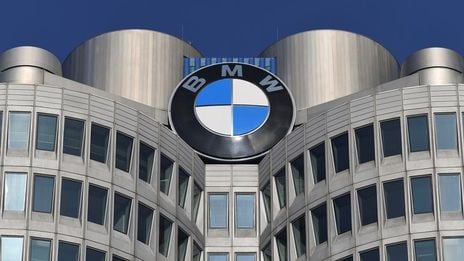MAINZ (dpa-AFX) - German Transport Minister Volker Wissing insists on enabling the widespread use of synthetic fuels (e-fuels). In this, he receives approval from the German Association of the Automotive Industry (VDA). Clear opposition comes from French Economy Minister Bruno Le Maire and the chairwoman of the Economic Wise Men, Monika Schnitzer.
Wissing told the Deutsche Presse-Agentur in Mainz that it is not just about the longer-term availability of e-fuels in the combustion engine. "It's also about the question, do we keep the know-how about a technology in Germany that we are one of the best masters of in the world today. Or do we simply abandon the development of this technology. That's why this is also an industrial policy issue," the FDP politician said.
The EU vote on the planned phase-out of new cars with internal combustion engines from 2035 had been postponed last week because of demands from Germany. Wissing had said that Germany could not agree to such a blanket ban on internal combustion engines at the present time. The EU Commission would have to submit a proposal on how climate-neutral, synthetic fuels (e-fuels) could be used in internal combustion engines after 2035.
Le Maire and Schnitzer believe this German blockade is wrong. "The auto industry urgently needs planning certainty for electromobility so that it can gear its investments to it," the chairwoman of the German Council of Economic Experts told the Neue Osnabrücker Zeitung (Monday). "Continuing to keep all possible avenues open means, in plain language, continuing to have no solution to the coordination problem: without sufficient charging infrastructure, not enough demand for electric cars, and without electric cars, not enough investment in charging infrastructure. That's where a clear announcement from the EU will help."
Le Maire argued along the same lines with regard to the European auto industry. "We are lagging five to ten years behind China in e-cars," investments must be made to catch up, he told France Info radio on Monday. He said he could not tell the major automakers in France, Stellantis and Renault, which have already made great efforts, that they must switch to e-mobility and then explain that they are still holding on to combustion technology for a bit.
"Economically, that's contradictory, industrially, that's dangerous, that's not in our national interest, that's not in the interest of our national manufacturers and, above all, it's not in the interest of the planet," the economy minister said.
VDA President Hildegard Müller, on the other hand, sided with Wissing. The EU Commission had not done its homework, Müller told the "Augsburger Allgemeine" (Monday). It had not presented the agreed proposal on the use of e-fuels. "Politicians must quickly ensure clarity and make an appropriate proposal," Müller added.
Wissing stressed, "We need the synthetic fuels. We cannot afford to do without them at all." He said this applies to aviation, maritime shipping and the existing car fleet, because there is no alternative to synthetic fuels for them. "And, of course, you can use them permanently for the internal combustion engine without endangering the climate."
Schnitzer reminded the audience that it takes "five times the amount of energy to produce e-fuels as it does for battery power." "We're going to need e-fuels badly for airplanes and ships, where you can't use batteries. But we don't have enough renewable energy in the foreseeable future to spend any amount of green power on producing e-fuels so that it's still enough for cars," Schnitzer argued.
VDA head Müller warned against "committing today that the production of e-fuels cannot be economical. With increasing production and corresponding economies of scale, production costs fall, as we have seen with solar energy."/glb/DP/mis






